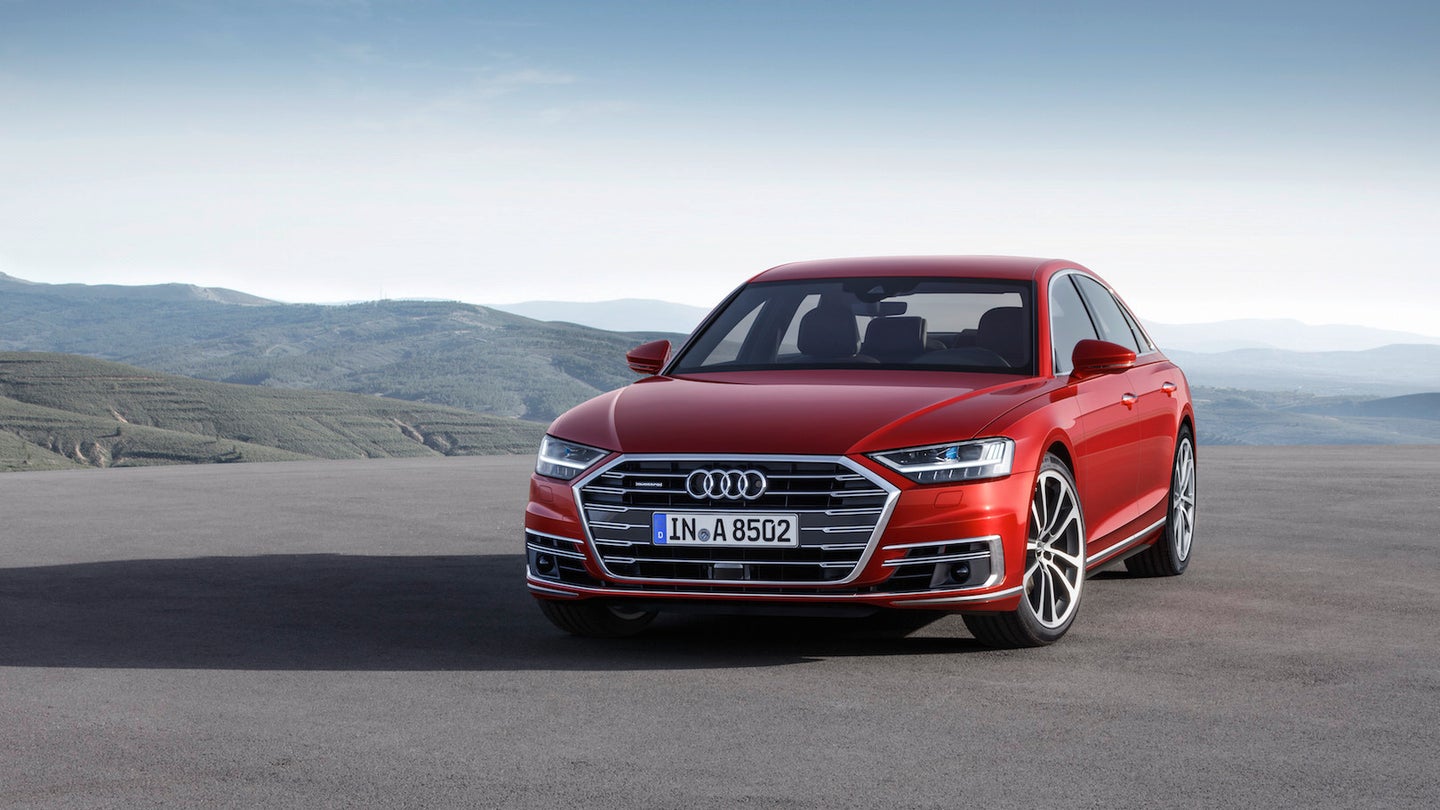Hey Carmakers: Please Stop Bullshitting About Self-Driving Cars
We’re looking at you, Audi.

The race to bring the first fully autonomous car to the general public is filthy with marketing gobbledygook, exuberant obfuscation, unsupportable boasts, extremely unsafe consumer abuse of half-baked and exaggerated capability, and what can only be described as willful misrepresentation of what autonomous car technology is capable of today.
For the past couple years, Tesla has been the champion of Self-Driving Madness. Its centerpiece, Autopilot, in the hands of a subset of Tesla fanboys, became the center of a series of small firestorms—most fodder for media ridicule, though at least one that involved a Harry Potter-fueled fatality. Mercedes, whose Drive Pilot was a powerful riposte to Tesla's Autopilot, pulled an ill-considered ad campaign boasting of the company's "Self-Driving Cars."
Audi, the number-three German luxury automaker, is under fire for serious corporate malfeasance and the target of continuing investigations for willfully deceiving regulators and consumers with illegal diesel emissions software, has joined the chorus that looks to cloud the issue with silly nomenclature, promoting a breathless race to be the first luxury automaker to market with a "look Ma, no hands!" approach to driving that everyone knows is preposterous—and, worse, dangerous.
With Audi's recent reveal of the 2018 Audi A8—a circa-$100,000 luxury saloon that will chase the segment-leading Mercedes-Benz S-Class and refreshed BMW 7-Series—the company focuses on the prowess of its “AI traffic jam pilot,” which allows the car to take control in traffic at speeds of up to 37 mph. It uses a combination of LIDAR, radar, a front-facing camera, and ultrasonic sensors that allow the A8 to, essentially, drive itself. This is not an extrapolation: Audi clearly states you can take your hands off the steering wheel “permanently” with the traffic jam pilot engaged:
"The driver no longer needs to monitor the car permanently. They can take their hands off the steering wheel permanently and ... focus on a different activity that is supported by the car, such as watching the on-board TV."
The problem is that self-driving cars do not exist today in the real world, despite advancements in semi-autonomous capabilities under very specific circumstances. This is true of Mercedes-Benz, and Tesla, and Audi, and everyone else. No matter how robust Audi's new autonomous technology is, it's still more laboratory science than real-world application. To qualify as an autonomous production car—one where you can take your hands off the wheel "permanently"—it would need to be ready for every granular issue that arises during a typical commute, let alone emergency situations. Consider a test where the car in question must drive autonomously across Manhattan: Any example on the market today fails at the first red light, or when the first pedestrian decides to jaywalk.
Tesla pulled back on its Autopilot boasts because of bad publicity. Mercedes retreated from its "self-driving car" campaign because it was foolish to begin with, and even dialed back on the actual applied capabilities of its self-driving suite until its technology is more tested. In choosing to disregard the lessons learned by Tesla and Benz, Audi is behaving in a way that is both counterproductive and, in the end, not all that smart.
